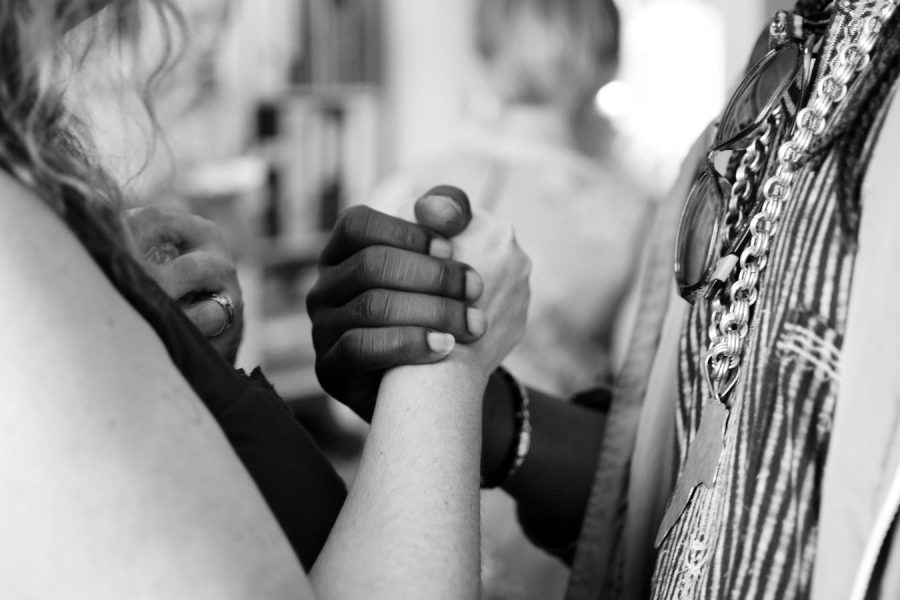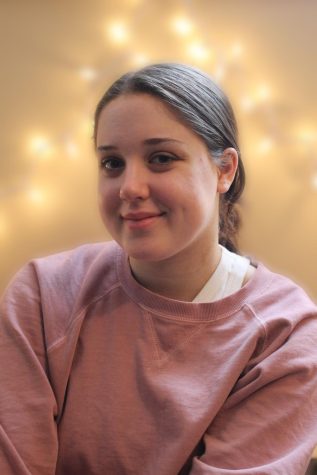JEDI Committee holds first-ever forum to further inclusivity
Students advocate for action through dialogue with peers and administration
The first JEDI Steering and Student Committee forum was held on March 23. Students from both Ruskin and Erie participated in-person and virtually to discuss how change can be made in the areas of diversity and inclusivity on campus.
March 30, 2021
Both the Erie and Ruskin campuses came together on March 23 for the Justice, Equity, Diversity and Inclusion Student Forum. This forum was an opportunity for students and faculty alike to gain a greater understanding of diverse life experiences and expressions.
There were mixed reactions and a variety of takeaways from the forum, according to Rebecca Perry, the JEDI Steering Committee co-chair.
“I think students are still frustrated and have every right to be,” Perry said. “If anything, it affirmed where we need to dedicate our time.
“We knew we wanted to have space to give an update to the Gannon community, and that’s what the forum was. The forum kind of took on its own life to meet the needs of the community at that time. We really approached the forum in a way that was honest.”
The meeting strived to build momentum, construct plans and formulate ideas for change within the Gannon community and the world at large, according to Sydney Smith, a junior physician assistant major.
“I feel like most of the questions were trying to gain understanding of what the committee is and what their plans for the future are,” Smith said. “Many students ask questions to advocate for themselves and others which is so important in order to give JEDI strong direction and be able to help students.”
Within the current structure of Justice, Equity, Diversity and Inclusion, there are two groups: the steering committee and the student advisory committee.
These two groups work together to facilitate conversation between students and administration. Both groups meet biweekly and include a diverse representation from across campus.
“I feel like the formation of the committee is a step forward to begin addressing major issues on our campus and making sure that students from all backgrounds have a good experience on campus,” Smith said.
The JEDI committee and the JEDI Student Forum are integral in maintaining communication between the student body and administration, said Joshua Staley, a junior political science major.
“It gives the administration and the committee time to be able to interact directly with the student body and the community,” Staley said.
“It is important for the administration to be able to directly tell students what they are working on and how they are trying to make our campus a healthier and more inclusive environment.”
Perry also said that two-way dialogue is one of the key principles of the committee and was one of the primary goals of the forum.
“Communication and marketing are top goals, because we know how much we need to do better,” Perry said.
Participants in the forum broke down plans to further inclusivity and the fulfillment of student needs. Long-term goals and an institutional action plan were reviewed. Some of the most urgent 2021 priorities include a communication and marketing plan, a toolkit and resource project, a human resources project, Diversity, Equity and Inclusion advocates, position proposals, financial planning project, and surveys and assessment projects.
“From our lens as a steering committee, it was our chance to say ‘Here’s who we are, here’s where we are and what we’re planning to do,’” Perry said.
There was a high concern for mental health and a focus on the need for more and diverse resources.
The forum also addressed the need for more support groups on campus, especially for victims of rape and sexual assault.
One of the biggest concerns at the forum, according to Caonabo Camilo, a sophomore psychology major, was the lack of diversity at Gannon as a whole.
“The committee fully recognized the issue and spoke about trying to become more inclusive not only within the board but within the entire Gannon community,” Camilo said. “They made it clear that they want all students, especially students of color, to feel safe and feel heard and protected within their community.”
The forum also brought up that it would be beneficial to look to resources outside of Gannon’s campus to help fulfill a growing need, Naomi Peltier, a junior social work major, said.
“Gannon is in the center of Erie, so we talked about using community resources to further inclusivity,” Peltier said.
The forum also acknowledged that while Gannon is making progress, there is still work to be done.
“The school is making the initiative, but it is not happening at a steady rate,” Peltier said. “There is a lot of talk with no action following it.”
Staley agreed – while discussion is a vital part of forming a plan, the plan must be executed.
“While forums and discussions are important, seeing direct actions and solutions is what needs to happen next,” Staley said. “Being able to have these conversations and talk about direct solutions will be key to making the changes that we all want to see at Gannon.”
Perry said that moving forward, the committee plans to make actions that are more tangible in response to student and faculty concerns.
“There’s a lot that we took away from the forum and a lot we need to act on, as an institution, and the Steering Committee is just one piece of that,” Perry said. “We need to be showing tangible change, and that’s how hopefully we can show students that it’s not just talk.”
Dominique Booker, a junior accounting major, felt that many questions were not answered, and the answers that were given could have been more direct. There needed to be more active listening, and there was little that differentiated this forum from forums in the past, Booker said.
One topic that was raised was the accountability of faculty for racial discrimination and hatred. While Booker felt that steps are being taken, they are not the right steps for the time and severity of the issues.
“Black students are tired of speaking about their issues because it has always been put to the side, and only becomes relevant when something happens,” Booker said. “Minority students would like for there to be better communication as to what type of processes there are for students who commit racial discrimination.”
Peltier said that while it was refreshing to see a large number of faculty and staff in attendance, more student representation was needed.
“It was great that faculty showed up,” Peltier said. “It shows that they want to continue these initiatives for inclusivity.”
There will be new, emerging opportunities for faculty and staff, including a workshop series.
Booker agreed that faculty participation and education was a step in the right direction.
“I do think educating the faculty and staff here by providing workshops is great,” Booker said. “I hope they evaluate what was said at the forum and continue to talk to other people outside their committee to get the feedback they need.”
While the forum was met with mixed responses, students acknowledged that the committee is making an effort to incite change.
“I feel that the committee is showing up and trying to show that they care,” Camilo said.
“As a board for Justice, Equity, Diversity and Inclusion, they made it clear that they want to hear our voices and get our opinions about everything that’s been going on on campus.”
In response to the forum, the Steering Committee has a better understanding of the variety of perspectives that Gannon students have, and is better prepared to work to serve each of these different perspectives, according to Perry.
“There is no one student opinion or one student experience,” Perry said. “We welcome the good, the bad and the ugly. Every time a student has brought something forward to us, it has helped us figure out another way we need to move this work forward.”
ANNA MALESIEWSKI






